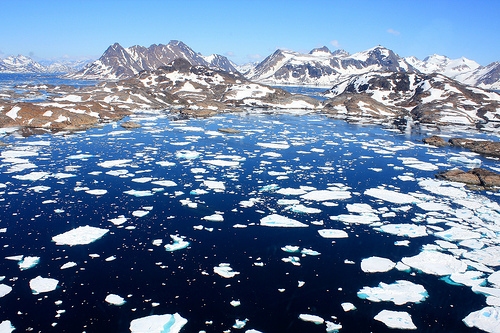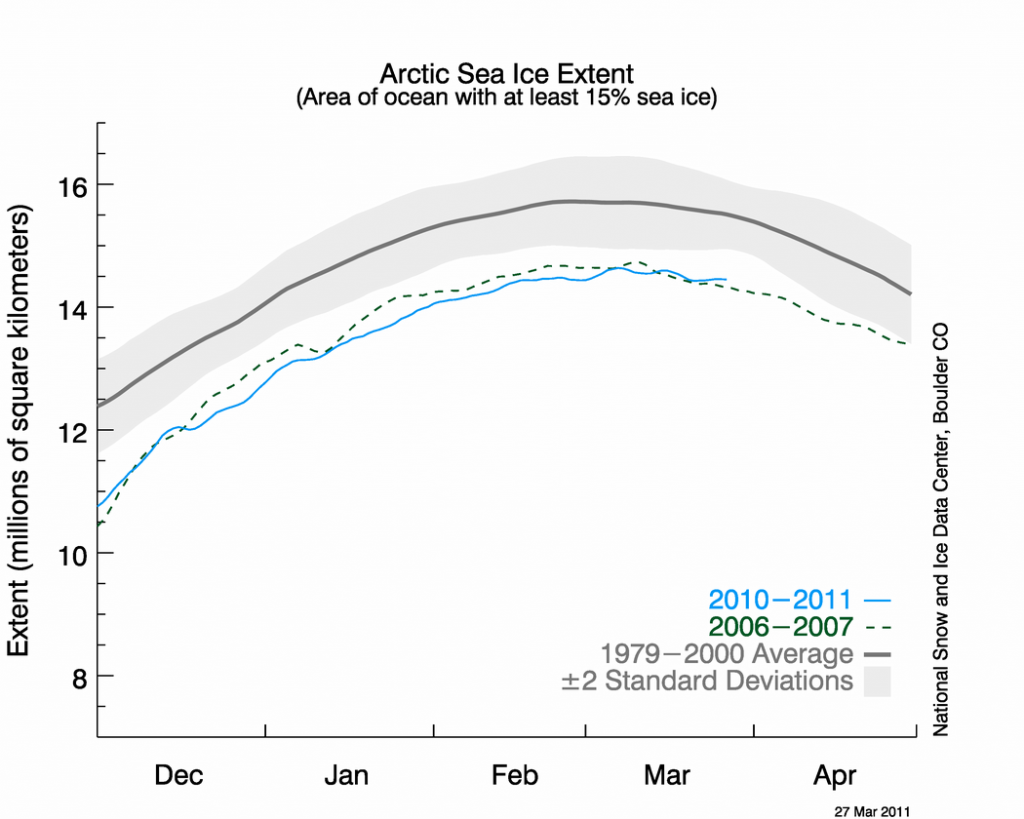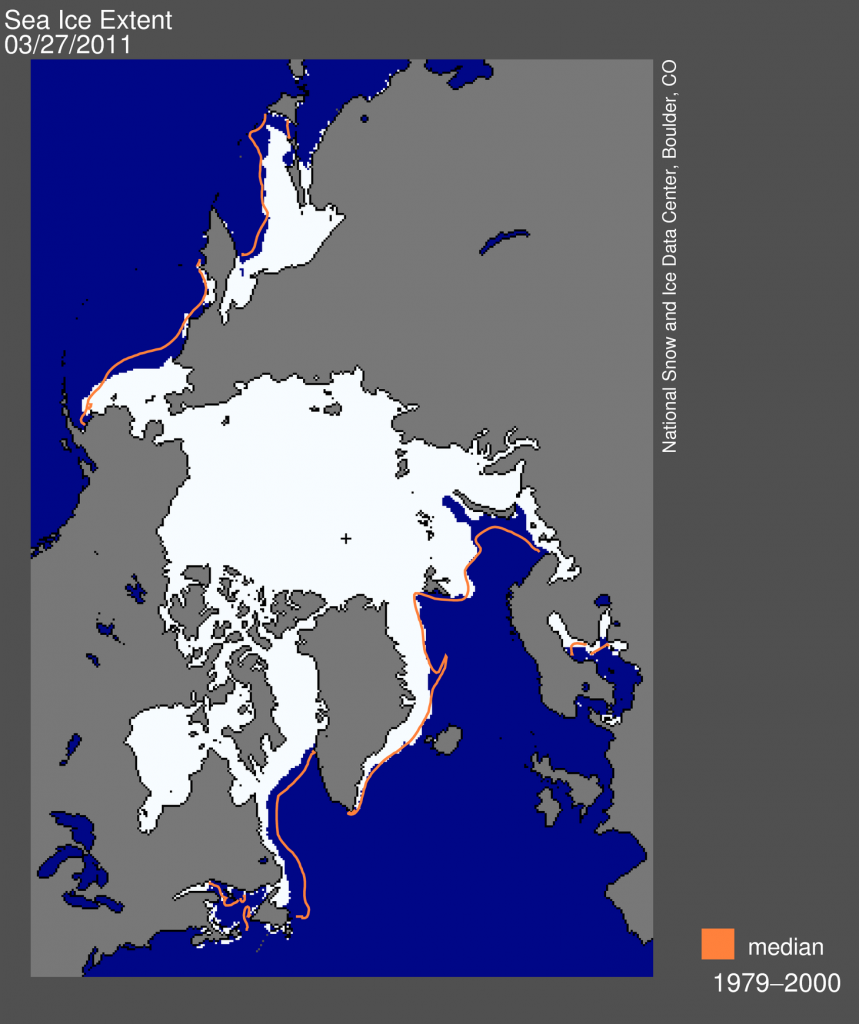2011 arctic ice extent is down

The 2011 maximum extent of Arctic sea ice appears to be tied for the lowest amount in area since satellite measurements began 32 year ago.
Researchers at the University of Colorado Boulder said the maximum ice extent was 463,000 square miles below the 1979-2000 average, an area slightly larger than the states of California and Texas combined. The measurements tied with those from 2006 as the lowest maximum sea ice extents measured since satellite record keeping began in 1979.

Climate scientists say they believe shrinking Arctic sea ice is tied to warming temperatures in the region, caused by an increase in human-produced greenhouse gases in Earth’s atmosphere. Citing the downward trend of Arctic sea ice extent in the last decade, some scientists from University of Colorado are predicting the Arctic Ocean may be ice free in the summers within the next several decades.
“I think one of the reasons the Arctic sea ice maximum extent is declining is that the autumn ice growth is delayed by warmer temperatures and the ice extent is not able to ‘catch up’ through the winter,” Walt Meier of CU-Boulder’s National Snow and Ice Data Center said. “In addition, the clock runs out on the annual ice growth season as temperatures start to rise along with the sun during the spring months.” (TerraDaily)
Measurements of winter Arctic sea ice show continuing ice loss
Arctic sea ice extent appeared to reach its maximum extent for the year on March 7, marking the beginning of the melt season. This year’s maximum tied for the lowest in the satellite record. National Snow and Ice Data Center. will release a detailed analysis of the 2010 to 2011 winter sea ice conditions during the second week of April.
The research team believes the lowest annual maximum ice extent of 5,650,000 square miles occurred on March 7. The maximum ice extent was 463,000 square miles below the 1979-2000 average, an area slightly larger than the states of Texas and California combined. The 2011 measurements were tied with those from 2006 as the lowest maximum sea ice extents measured since satellite record keeping began in 1979.

Virtually all climate scientists believe shrinking Arctic sea ice is tied to warming temperatures in the region caused by an increase in human-produced greenhouse gases being pumped into Earth’s atmosphere. Because of the spiraling downward trend of Arctic sea ice extent in the last decade, some CU scientists are predicting the Arctic Ocean may be ice free in the summers within the next several decades.
The seven lowest maximum Arctic sea ice extents measured by satellites all have occurred in the last seven years, said CU-Boulder Research Scientist Walt Meier of the National Snow and Ice Data Center, who participated the latest study. “I’m not surprised by the new data because we’ve seen a downward trend in winter sea ice extent for some time now.”
Scientists believe Arctic sea ice functions like an air conditioner for the global climate system by naturally cooling air and water masses, playing a key role in ocean circulation and reflecting solar radiation back into space. In the Arctic summer months, sunlight is absorbed by the growing amounts of open water, raising surface temperatures and causing more ice to melt.
Arctic Sea Ice News & Analysis
Since satellite record keeping began in 1979, the maximum Arctic sea ice extent has occurred as early as Feb. 18 and as late as March 31, with an average date of March 6. Since the CU-Boulder researchers determine the maximum sea ice extent using a five-day running average, there is small chance the data could change.
In the beginning of April, NSIDC will issue a formal announcement with a full analysis of the 2010 to 2011 winter season, and graphics comparing this year to the long-term record. We will also announce the monthly average March sea ice extent, the measure scientists rely on for accurate analysis and comparison over the long term.
Icelights: Your Burning Questions About Ice & Climate

Commenting rules and guidelines
We value the thoughts and opinions of our readers and welcome healthy discussions on our website. In order to maintain a respectful and positive community, we ask that all commenters follow these rules:
We reserve the right to remove any comments that violate these rules. By commenting on our website, you agree to abide by these guidelines. Thank you for helping to create a positive and welcoming environment for all.